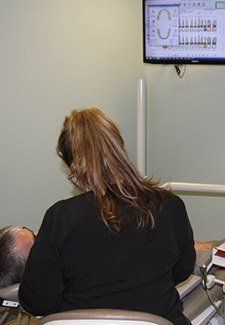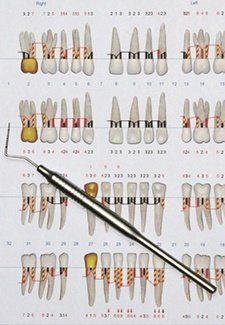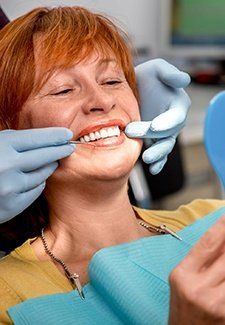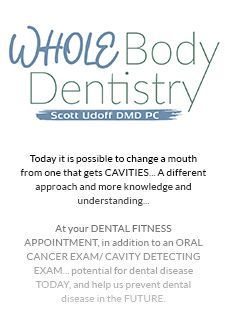,
This is a placeholder for the Yext Knolwedge Tags. This message will not appear on the live site, but only within the editor. The Yext Knowledge Tags are successfully installed and will be added to the website.
Preventative Dentistry
Preventative Holistic Dental Care Services
This is a placeholder for the Yext Knolwedge Tags. This message will not appear on the live site, but only within the editor. The Yext Knowledge Tags are successfully installed and will be added to the website.
Hours:
This is a placeholder for the Yext Knolwedge Tags. This message will not appear on the live site, but only within the editor. The Yext Knowledge Tags are successfully installed and will be added to the website.
Protecting Healthy Smiles With Preventative Dentistry
Many people believe that biannual cleanings with the hygienist, along with routine brushing and flossing, are enough to keep the teeth and gums healthy. However, we do recommend that patients also implement a tailored home hygiene regime. The Scott Udoff DMD PC team works with our valued patients in co-creating goals to achieve optimal oral health and improved overall wellbeing.
Dental issues that are left untreated will progressively worsen and if neglected, can result in bone loss, tooth loss, facial asymmetry, and musculoskeletal imbalances. Dr. Scott Udoff has the expertise to see the symptoms of early-onset oral health problems and align his care with the patients’ vision of oral health, which can rejuvenate oral and systemic well-being. At our holistic dental care near Rockland County, NY, Dr. Udoff and his team take the time to educate patients so you can achieve optimal oral health.
If you are seeking a dental office that can meet all of your needs, look no further. To learn more about our wide array of dental procedures, contact our Middletown dental practice today.
Dental Checkups, Teeth Cleanings, and Recare
Dr. Udoff believes that cleanings are an opportunity for the patient to learn and understand how successful your home oral hygiene habits are. For this reason, Dr. Udoff uses the term “recare” for his patients’ cleaning appointments.
Dr. Udoff strongly recommends that patients schedule recare visits according to your level of periodontal health and will tailor your needs accordingly. It’s important to remember that you are the one in control of maintaining and/or improving your oral health, which is why Dr. Udoff utilizes the Dental Fitness Program. This program is a way for our team to track your ongoing periodontal health, provide scores, and track any changes. If changes occur, the scores spanning the previous visits will guide our holistic dentists near Westchester County, NY in recommendations to improve health.
Gum Disease Treatment
Gum disease is caused by the bacteria in plaque. Plaque is the clear to milky-white residue that attaches to the gumline, under the gums, and between teeth. The bacteria excrete an acid that deteriorates the tissues — both gums and bone. Proper oral hygiene will remove plaque. If plaque remains on the teeth for more than 48 hours, deterioration of the gums can develop. The beginning stages are known as gingivitis. The plaque can harden to become tartar or calculus. This leads to further tissue destruction, known as bone loss or periodontal disease.
If Dr. Udoff detects early onset of gum disease or gingivitis, we recommend prompt treatment in order to help our patients avoid lasting damage. Periodontal disease is arrested by performing scaling and root planning, which involves a deep cleaning below the gum line. He may also prescribe a medical-grade mouthwash to use at home, nutritional supplements, or localized antibiotics to assist the body in the healing process. Dr. Udoff will also spend time with patients to help you better understand the cause of your periodontal disease and some good prevention practices to use at home.
Oral Cancer Screenings
Oral cancer is positively identified in tens of thousands of new patients every year, many cases of which are already in advanced stages. Receiving a diagnosis early on in the cancer’s development is ideal, as the chances of a successful recovery will be maximized. That is why Dr. Udoff can provide a thorough screening as a part of regular examinations, taking care to note any potential abnormalities like lumps, crusts, discolored skin, suspicious sores, and more so that they can be inspected further.
Dental Fitness Program
The best kind of dental problem is one that never develops in the first place, so our dental fitness program is designed to prevent tooth decay, cavities, and gum disease long-term. Dr. Udoff will put together a plan uniquely suited to you so that the health and beauty of your smile are fully protected.
Learn More About Our Dental Fitness Program
Fully Renew Oral Health With Gum Disease Treatment
Gum disease is one of the most pervasive oral health conditions in the U.S. Among adults over the age of 30, it’s the most common cause of tooth loss, and it has been linked to numerous chronic and systemic illnesses, including diabetes and heart disease. At the Middletown dental office of Scott Udoff DMD, we partner with patients to prevent oral health concerns, whenever possible, including screening for gum disease during regular dental exams. We also offer a range of effective gum disease treatments to renew your oral health and function. If you want to learn more about gum disease and available treatments, call our dental office in Middletown to schedule your consultation appointment with Dr. Udoff and his caring team today.
What Is Gum Disease?
Gum disease is an oral health condition that occurs when sticky-acidic plaque buildup at or below the gums leads to irritation, inflammation, and destruction of gum tissue. In the early stages, patients experience some mild inflammation and irritation, but if left untreated, the symptoms and effects of gum disease can be severe.
What Are Symptoms of Gum Disease?
In the early stages, known as gingivitis, gum disease is not likely to be recognizable to the untrained eye. However, as gum disease reaches the more advanced periodontitis stage, you’ll likely start to notice a few more serious side effects, including:
- Red, purple, or otherwise discolored gum tissue
- Bleeding gums
- Teeth that look longer due to gum tissue recession
- Swelling or inflammation in the gums
- Sores or infection in the gum tissue
How Is Gum Disease Diagnosed?
In most cases, the subtle warning signs of gum disease are not noticeable in the earliest stages, so keeping up with your dental exams is essential. During your six month dental checkups, we’ll perform a screening called periodontal charting. This preventive screening tracks the depths of the pockets between teeth and gums. One of the earliest indicators of gum disease is an increase in pocket depth.
When we notice these changes, we can partner with you to improve oral health at-home and we may recommend more frequent teeth cleanings. If pocket depth increases and there are other symptoms of gum disease, we will likely recommend more advanced treatments outlined below.
How Is Gum Disease Treated?
In our dental office, we begin with the most conservative treatment options. For those with gingivitis, that usually means partnering with patients to improve your oral hygiene at home in addition to having patients visit us three to four times a year for deep cleanings rather than just twice a year. For more severe gum disease, we may need to provide one or more advanced treatments, including:
- Scaling: A systematic deep cleaning to remove plaque and tartar buildup at and below the gum line
- Root planing: Smoothing of tooth roots to prevent future buildup of plaque and tartar
- Antibiotic therapy: Oral and/or topical treatments to reduce the numbers of plaque producing oral bacteria
Prevent Dental Issues With Our Help
Call now!
(845) 400-9144
(845) 400-9144
By far my favorite dentist in Middletown! Love the staff and the atmosphere. Dr. Udoff does great work, is gentle, caring, and has a great sense of humor! Always a pleasure going there.
- Jenna Darrell, Google
VISIT US
,
This is a placeholder for the Yext Knolwedge Tags. This message will not appear on the live site, but only within the editor. The Yext Knowledge Tags are successfully installed and will be added to the website.
This is a placeholder for the Yext Knolwedge Tags. This message will not appear on the live site, but only within the editor. The Yext Knowledge Tags are successfully installed and will be added to the website.
HOURS
- Sunday
- Closed
- Mon, Thu
- -
- Tuesday
- -
- Wednesday
- -
- Fri - Sat
- Closed
Monday
Tuesday
Wednesday
Thursday
Friday
Saturday
Sunday
This is a placeholder for the Yext Knolwedge Tags. This message will not appear on the live site, but only within the editor. The Yext Knowledge Tags are successfully installed and will be added to the website.
Monday
Tuesday
Wednesday
Thursday
Friday
Saturday
Sunday
This is a placeholder for the Yext Knolwedge Tags. This message will not appear on the live site, but only within the editor. The Yext Knowledge Tags are successfully installed and will be added to the website.
CONTACT US
This is a placeholder for the Yext Knolwedge Tags. This message will not appear on the live site, but only within the editor. The Yext Knowledge Tags are successfully installed and will be added to the website.
This is a placeholder for the Yext Knolwedge Tags. This message will not appear on the live site, but only within the editor. The Yext Knowledge Tags are successfully installed and will be added to the website.
Hi. Do you need any help?
Privacy Policy
| Do Not Share My Information
| Conditions of Use
| Notice and Take Down Policy
| Website Accessibility Policy
© 2025
The content on this website is owned by us and our licensors. Do not copy any content (including images) without our consent.






Share On: